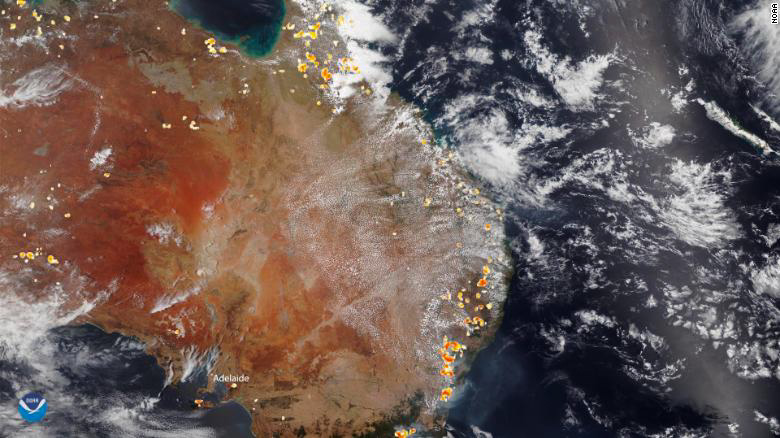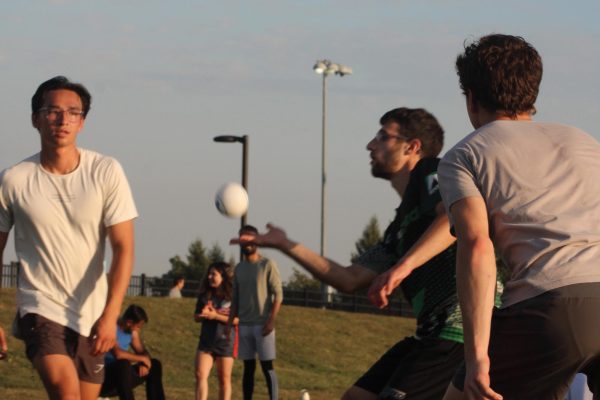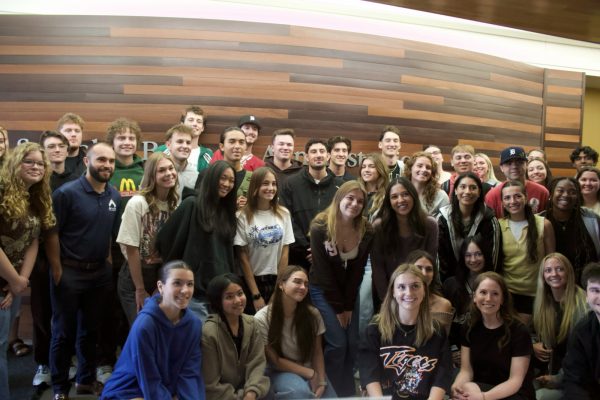Professors weigh in on Australian bushfires
An aerial view shows the worst of the fires on Dec. 26, 2019.
The Australian bushfires have been burning throughout the start of the new year and could be the result of severe drought as well as climate change, according to the BBC. But, what are people doing to stop the fires, and what can we do to prevent further tragedies from happening?
Dr. Graeme Harper, dean of the Honors College, said via email he remembered helping put out small bushfires in Australia as a child, but nothing of this magnitude.
“Sometimes we’d get together to go out and try and assist when bushfires broke out,” Harper said. “This is very different. This is far, far worse. We’ve heard little about those who have been killed and injured.”
Harper has not been personally affected by the fires, but he has been keeping in touch with his friends and family in Australia. Harper witnessed a bushfire burning down a schoolhouse when he was 21.
“I remember the smell of a bushfire, after it was over,” he said. “The way the black charred ground would crunch. You can’t ever forget that smell and the sound. It is not like a living thing at all. Totally the opposite.”
Recent rains have brought some relief to the people affected by the fires. However, there still are blazes everywhere in Australia. According to the BBC, fires are still burning in New South Wales — the state most affected overall — and Victoria.
People are doing all they can to support the people in Australia. Fundraisers are popping up across the world and artists are drawing for donations to Australian charities. A 10-year-old Australian girl named Briella auctioned off her artwork, along with countless others on Twitter who held drawing events to gain support.
A girl on Instagram went as far as selling her own nudes for donations. According to The Guardian, Katelyn Ward made over $700,000 selling pictures.
Celebrities such as The Wiggles have reunited to fundraise and give a push to the people of Australia and to subdue the fires.
Dr. Scott Tiegs, an associate professor in the Department of Biological Sciences, said we need to focus more on how to prevent such tragedies from occurring.
“We need to be proactive to prevent them from happening again,” Tiegs said.
One of the options Tiegs talked about was alternative energy sources rather than using fossil fuels.
According to the National Resources Defense or NRDC, fossil fuels such as oil and natural gas can lead to big consequences. Land degradation, pollution of waterways and emissions of harmful chemicals such as mercury are just a few.
“We need to get off fossil fuels, and embrace solar,” Tiegs said in an email. “This is our best bet to minimize unwanted effects of climate change such as intensified droughts and wildfire across the planet.”
According to Tiegs, politicians in most countries are on board with climate change. The United States is an exception. He said education is important when it comes to the “evidence based decision-making” in countries’ governments.
The support of so many people, big and small, can give Australian people hope and let them know that humanity’s natural instinct is to help each other, something Harper can attest to.
“We sometimes have been shown how it’s easy to turn people against other people, for whatever reason,” Harper said. “But when you see how people come together naturally with things like this, you know that the natural condition of humankind is to support each other.”






